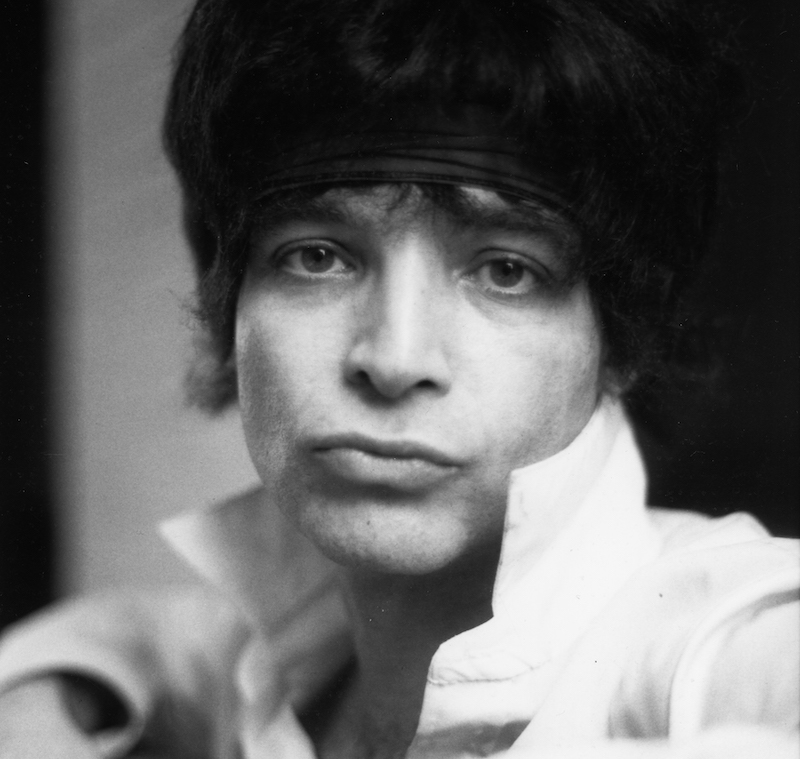
ALAN VEGA. New video “Muscles”
Today sees the release of Alan Vega’s lost album, ‘Mutator’. Vega’s name is synonymous with unfettered creativity, and his work proved informative in the invention of industrial, synth/post punk and genres beyond. From the late 1950s, through his years playing in Suicide, and all the way up until his death in 2016, Vega was constantly creating. This process naturally led to a wealth of material that didn’t see the light of day immediately when it was recorded, which came to be known as the Vega Vault.
‘Mutator’ is the first in a series of archival releases from the Vault that will come out on Sacred Bones Records. It was recorded with his longtime collaborator Liz Lamere and discovered in the vault in 2019 by both Lamere and his close friend and confidante Jared Artaud. Soon after they mixed and produced the songs into the visionary album that was lurking within those tapes. Listen to ‘Mutator‘ here: https://geni.us/AlanVegaMutator
The Vega Vault’s creative director Michael Handis and film director Douglas Hart (The Jesus and Mary Chain) have teamed up for a moving archival video homage for Mutator single, “Muscles”. Hart reveals, “When I was 15 years old, an arts show on British TV called ‘Riverside’ showed the video for Suicide’s ‘Frankie Teardrop.’ This video became for me the nexus between music and images… Those sounds and frames have haunted and sustained me for 40 years. So to be involved in bringing the Vega Vault to life for ‘Muscles’ blows my f**king mind – a dream project for me.”
Handis adds, “The Vega Vault’s visual collection showcases the true spectrum of Alan Vega’s persona with intimacy – the artist, the poet, the musician, the style icon, the unifier, the polarizer. Douglas Hart’s touch pushes these rare and unseen images beyond their digital threshold, mutating static stills into a full-on optical assault. This kinetic approach to the archival photography mirrors the blazing spirit of Alan Vega – primitive yet simultaneously futuristic. And totally cathartic.”
The visual artist, musician, and poet Alan Vega was born in Brooklyn in 1938. He co-founded the massively influential avant-garde band Suicide with Martin Rev in 1970, with whom he performed off and on throughout his life. Vega would go on to have a prolific career as a solo artist. His hit song “Jukebox Babe” led to a contract with Elektra Records, who released two albums including the cult classic Saturn Strip, produced by Ric Ocasek. From there, rejecting the commercial machine, he went back to his roots, doing a deep dive into experimenting with sound in the studio. This era resulted in new solo records coming out consistently throughout the next several decades; starting with Deuce Avenue, continuing through Dujang Prang (on Henry Rollins’ 2.13.61 imprint), and culminating with his masterpiece It. Vega considered the albums from this period the audio counterpoint to his visual art that reflected the world around him while simultaneously delving into universal themes. It makes his work as relevant today as it was then.
It was during this period that he began working with Liz Lamere, who became his wife and the most crucial collaborator of his solo career. Lamere, along with fellow Vega collaborator Jared Artaud, discovered in 2019 the lost Vega album, Mutator, which they co-produced and mixed. In addition to this, Mutator came to be with the help of Josh Bonati who mastered the album and Ted Young who engineered and transferred the analog tapes. Along with creative director Michael Handis, Lamere and Artaud are are now spearheading the Alan Vega Vault project, which aims to bring rare and unreleased work from throughout Vega’s career to the public for the first time.
Mutator was recorded with Lamere at Vega’s NYC studio from 1995-1996, and it serves as a document of a particularly fertile time in his creative life. He had 11 full-length solo albums come out during the ’80s, ’90s and ’00s — plus numerous collaborations, and Suicide records: A Way of Life, Why Be Blue and American Supreme. Mutator wasn’t shelved intentionally, but Vega’s back-to-the-grindstone M.O. meant that he had moved on to making his next record before this one was finished.
At the time of the Mutator sessions, Vega was massively inspired by what was happening in the streets of New York — not only the hip hop scenes that were exploding throughout the outer boroughs, but also the literal sounds of the streets, the traffic noise and industrial ambience of city living. That influence trickled into the sounds he and Lamere captured in those sessions. That sensibility, paired with Vega’s unmistakable voice and force of personality, is what made it the great album it is now. The final piece was the production job, completed by Lamere and Artaud 25 years after the songs were first captured.
Mutator is out now via Sacred Bones Records in partnership with Saturn Strip, LTD.
